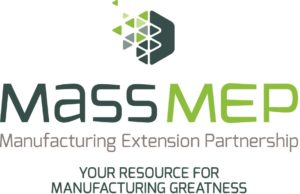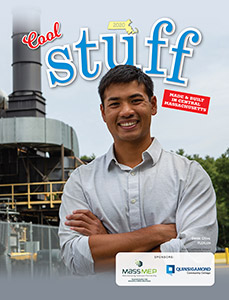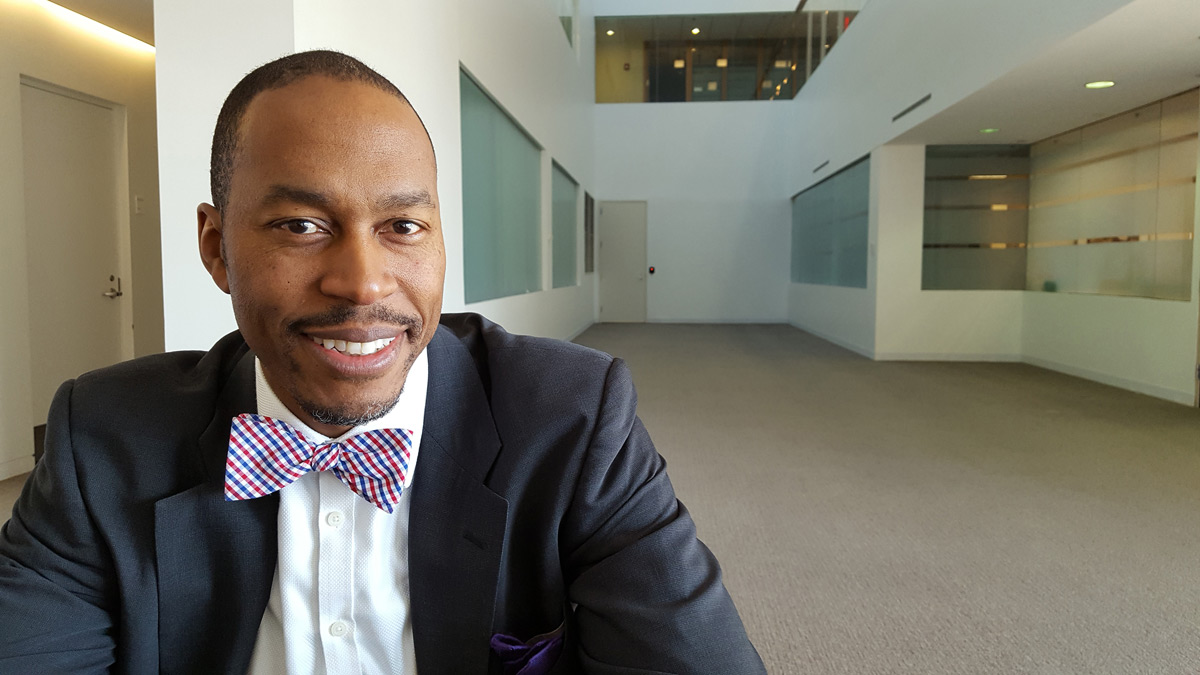
Travis McCready, former CEO of the Massachusetts Life Sciences Center office, in Waltham. / Photo by Brad Kane
The state is a global leader in a cutting-edge industry subsector
For 30 years, Charles Alpuche worked for PepsiCo, rising to senior vice president of North American Beverages. After retiring early, with a pension and benefits, he eventually returned to work in an entirely new industry, working for Insulet Corp., a company now based in Acton which makes an insulin delivery system called OmniPod.
“It was easy for me to come out of retirement because I absolutely loved what we were doing for the diabetes community,” Alpuche said. “To me, it’s about being happy to wake up in the morning and just change people’s lives.”
Insulet
Location: Acton
Founded: 2003
Employees: 1200
Products: Omnipod Insulin Management System and the Amgen Neulasta Onpro kit.
Product’s use: The Omnipod is an insulin infusion pump for type 1 or type 2 insulin requiring diabetes. The Amgen kit uses the same technology to deliver Neulasta, which stimulates the creation of white blood cells.
Growing company: 65% of the Insulet employees have been hired since the company broke ground on its current location in 2017.
Since breaking ground on its Acton facility in 2017, Inuslet has grown its employment by 65% to 1,200. Bringing manufacturing previously done in China to the Massachusetts location, it hired hundreds of people in a wide range of roles including manufacturing, research and development, software engineering, marketing, chemical engineering, and sales. To help make this happen, the State of Massachusetts provided support, including tax incentives.
“I’ve built plants all over the world,” Alpuche said. “It was one of the best partnerships I’ve ever worked with to make it happen.”
Massachusetts has long worked to cultivate its life sciences industry, which includes everything from pharmaceuticals produced with biotechnology techniques to implantable medical devices. Today, the state has the second-highest employment in biotech R&D after California – which, of course, is a far more populous state. It’s also surpassed only by its big West Coast cousin in patents for medical devices in recent years. Big industry players like Sanofi, Shire, and Biogen have an important presence here.
Depending on your measure … Massachusetts is ranked No. 1, No. 2, or No. 3 in everything in life sciences in the United States.”
— Travis McCready,
Massachusetts Life Sciences Center
The best
Life science companies find employees and partners at major Massachusetts hospitals and colleges. They benefit from the fact the state has the highest percentage of people with advanced degrees. And the companies, in turn, stimulate local economies. The average annual wages for both biopharma manufacturing and medical technology sectors are well over $100,000.
“Depending on your measure – and it doesn’t really matter which measure you choose – Massachusetts is ranked either No. 1, No. 2, or No. 3 in everything in the life sciences in the United States,” said Travis McCready, president and CEO of the Massachusetts Life Sciences Center, a public-private partnership boosting the industry.
McCready said one big advantage for Massachusetts is that, unlike in most other states, its life sciences industry is not exclusively based in one metro area. While Cambridge, and specifically Kendall Square, is famous for its concentration of biotech and other life science companies, there are other clusters around the state.
“We’ve been working at this for over a decade to ensure that all these areas have the ingredients they need to be self-sustaining,” McCready said. “They themselves can spin off economic activity and scientific activities without having to be connected back in to what’s happening at Kendall Square.”
Setting up in a Worcester cluster
Advirna, a biotechnology company with just four employees, is a good example of the value of this geographical diversity. The company makes chemically synthesized short RNA molecules to penetrate cells to target specific genes for research and therapeutic purposes.
Alexey Wolfson, the company’s CEO and chief science officer, said that after receiving its first federal small business innovation grant in 2012 it started operations at a biotech incubator in Cambridge.
Advirna LLC
Location: Worcester
Founded: 2007
Employees: 4
Products: Chemically synthesized short RNA molecules
Employees’ median salary: $65,000
Wait for it: CEO Alexie Wolfson, is of Russian origin, and the company’s Russian farewell party from its previous incubator space at LabCentral became legendary.
“The availability of the scientific community is important, because you can get any advice or experience you can imagine,” Wolfson said. “You can reach people who know different areas that you have no idea about.”
Once Advirna had used its prime location to find partners and get its technology established, Wolfson said, it was able to move to the Massachusetts Biomedical Initiatives incubator in Worcester, where its costs are significantly lower.
MBI is just one of many institutions throughout the state focused on supporting life sciences companies, bringing them together, and helping them form connections with research institutions, partners, and funders. Qi Zhao, CEO of Enrich Therapeutics, one of Advirna’s neighbors at MBI, said he was impressed with how quickly the company was able to rent lab space at the incubator. In addition to being affordable, he said, MBI understood Enrich’s specific needs as a startup.
Enrich Therapeutics
Location: Worcester
Founded: July 2018
Employees: 3
Product: Device for isolating a single cell for research and drug development work
Employees’ median salary: $40,000
And it all fits in your pocket: Uses smartphone parts to isolate live, single cells.
“We don’t have to spend a lot for equipment we only use once a week,” Zhao said.
Enrich is in the business of helping researchers to capture single live cells for drug discovery and research purposes.
So far, it consists of just three cofounders, but as the company grows, Zhao said he anticipates hiring lab technicians, cell biologists, and other employees.
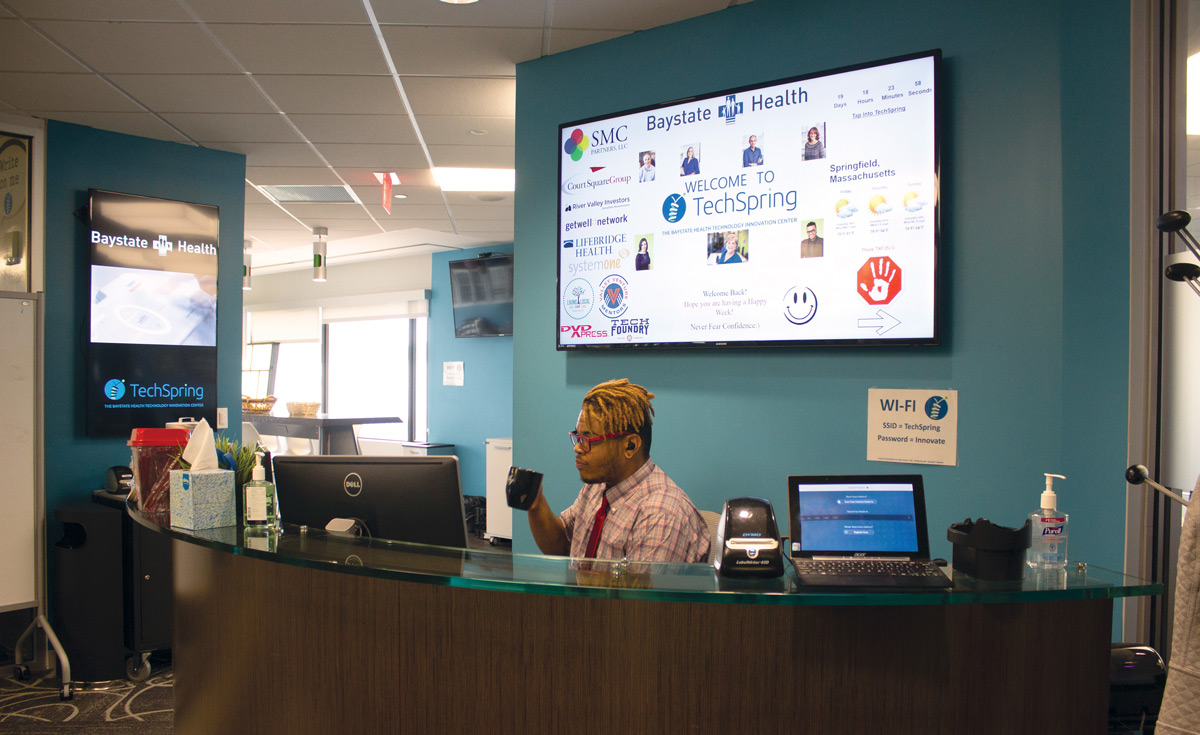
The office for Springfield biotech consultant TechSpring is set up to be similar to Silicon Valley companies, in order to encourage innovation. Waylon Harris’ role with the company is to be its innovation host. Photo by Michael Papetti
Biotech in Western Mass.
Space was a key consideration for TechSpring, an innovation center that’s part of the Bay State Health system in Springfield.
TechSpring works with companies designing IT systems to improve healthcare quality and efficiency, using Bay State as a lab.
Innovation Manager Jill McCormick said, when the organization started up in 2014, it could have set up offices at Bay State Hospital or in a small, cheap office. Instead, it created a large office reminiscent of a cutting-edge Silicon Valley building including coworking space for other health technology companies to hold meetings or set up their own small offices. Using designs with glass walls and amenities like a fancy coffee machine and a keg for after-business hang-outs, it encourages collaboration.
“It’s just the idea of getting people who wouldn’t normally talk to each other to be in the same space where titles don’t matter and it’s really about imagination and collaboration,” she said.
TechSpring
Location: Springfield
Founded: 2014
Employees: 7
Product: Digital health innovation facilitation (consulting)
That’ll bring in the crowds: TechSpring holds an open house for the general public on each month with pizza and beer.
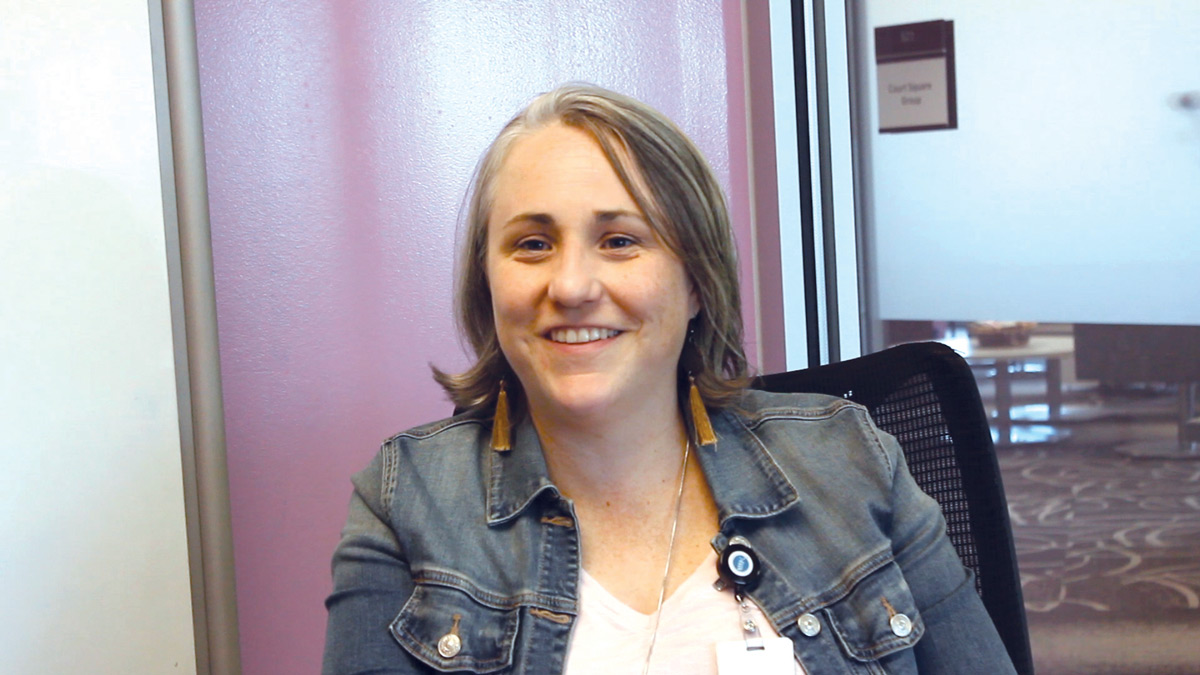
Photo by Michael Papetti
It’s just the idea of getting people who wouldn’t normally talk to each other to be in the same space where titles don’t matter.”
— Jill McCormick, TechSpring
#startuplife
Like TechSpring, Activ Surgical in Boston has a distinctive startup culture. With just 19 people in the company, CEO Todd Usen, who previously helped lead much larger companies, said he now regularly empties the office dishwasher. The company is creating a system using artificial intelligence and computer sensors to give surgeons extensive 3D visual information during a surgery.
“We can identify critical structures,” Usen said. “We can see the landmines and the landmarks.”
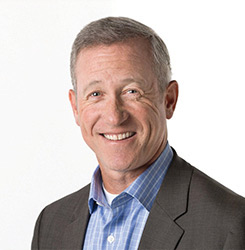
Todd Usen, CEO, Activ Surgical
Activ Surgical’s aim is to make each patient’s specific anatomy clear to surgeons, including those who may not perform high volumes of a specific surgery each year.
The company is moving toward commercialization of its product, which means doubling in size over the next year. Given the company’s proximity to the universities, hospitals, and talent Massachusetts is known for, Usen doesn’t expect that to be a problem. ◾

